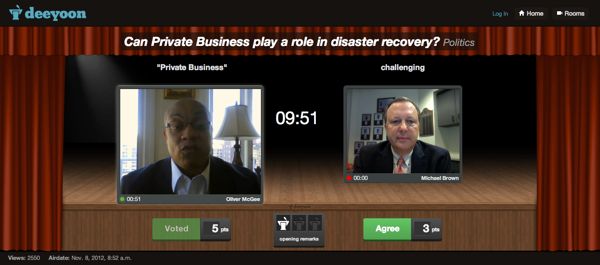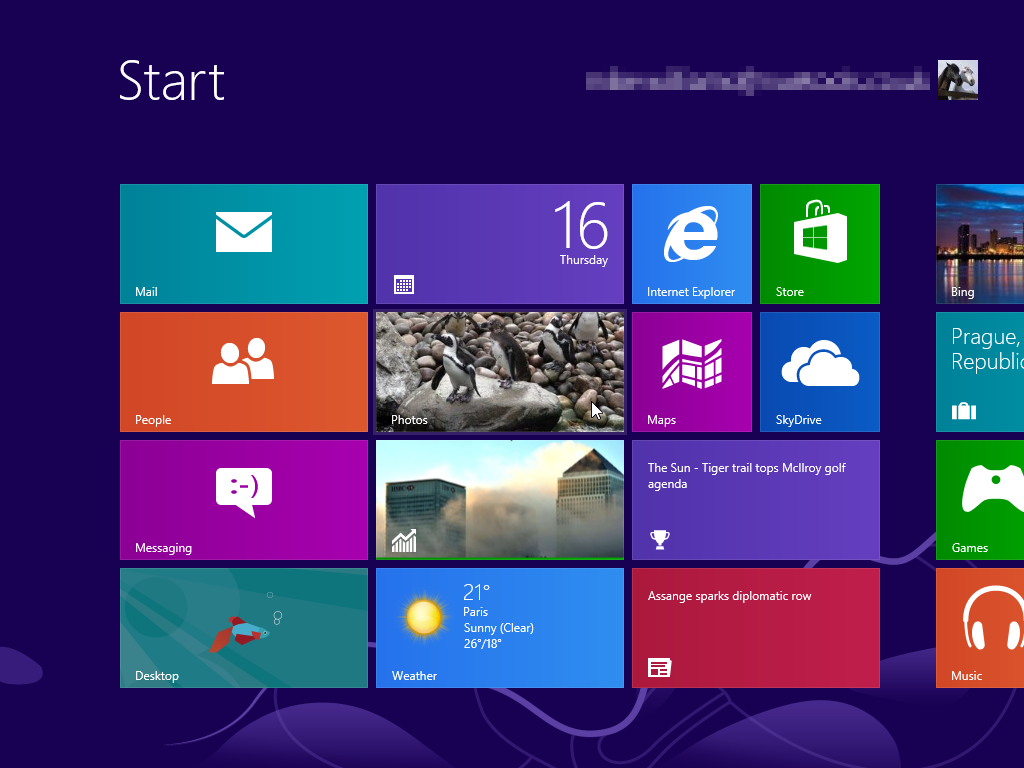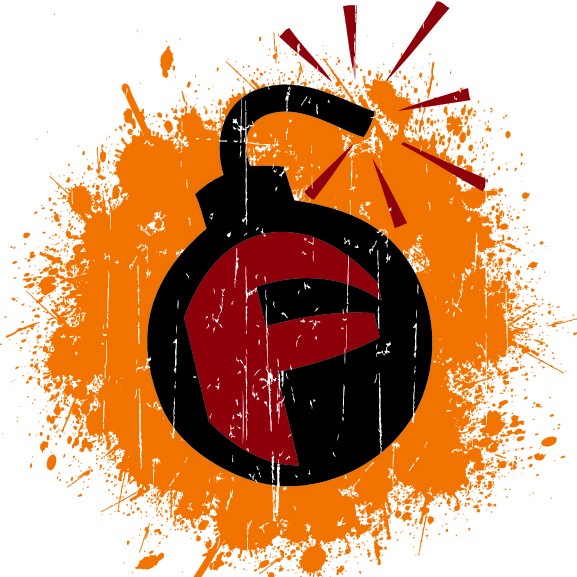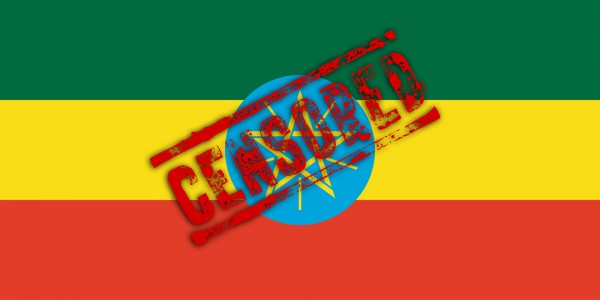
The future of the flame war
Anonymity serves an essential purpose; it allows us to speak without fear of persecution. But two-way anonymous communications are inherently antisocial, and are often counterproductive when trying to establish a certain level of discourse. This is the root of the comments section dilemma, and an issue online news sites like BetaNews think about quite a bit. We want you to be able to speak freely. We hate having to censor anything, but we also want civilized conversation.
Text-only communication is viewed as an "impoverished" form of social exchange, lacking all of the nonverbal nuances that help us share information on a deeper, more human level, and anonymous text-only communications are even weaker, stripping out most of the ethos of the speaker.

Egypt moves ahead with ban on Internet porn
Egyptian Attorney General Dr. Abdel Meguid Mahmoud has sent the official request to ban pornographic websites in Egypt, according to Egyptian state newspaper Al-Ahram Wednesday. Mahmoud sent letters to Egypt's Minister of Communications and Information Technology, to the head of the National Telecommunications Regulatory Authority, and to the Ministers of the Interior and Information, demanding that sites "inconsistent with the values and traditions of the Egyptian people and higher state interests" be blocked.
This ban on Internet porn stems from a 2009 State Council Administrative Court case that called for a government ban on sites harboring material deemed offensive to traditional Islamic beliefs. In March of this year, the court ruled that Internet porn "destroy[s] all religious beliefs, ethics and moral values," and that a ban should be put in place.

Saudi Arabia calls for new international body to censor the Internet
You’ll no doubt be familiar with The Innocence of Muslims, the controversial film that has angered Muslims across the Middle East, sparking riots and leading to several deaths.
It’s unlikely you’ll have actually watched it, although the more curious among you may have caught some of it on YouTube, where the film is still freely available -- provided, of course, you’re not reading this in one of the countries where Google has blocked it, specifically Libya, Egypt, India, Indonesia, and Malaysia. Russia recently banned the film, too, which unsurprisingly also is not available to watch in Iran, Pakistan, or Afghanistan, where they’ve chosen to go a step further and block YouTube entirely.

Why won't Google pull that offensive YouTube video?
Let’s everybody beat up on YouTube for not pulling that offensive anti-Muslim video that is infuriating people around the world. No, wait. As disturbing as this story is let’s instead take a moment to try and figure what’s really happening and why YouTube and its parent Google are behaving this way.
It’s easy to blame Google’s algorithmic obsession for this mess, but I don’t think that’s at work here at all. Yes, Google is very good (which means very bad in this case) at blaming one algorithm or another for pissing-off users. Google customer support is, in a word, terrible for this very reason, and it often seems like they don’t even care. But this case is different, because it has less to do with algorithms than it has to do with intellectual property laws.

Microsoft can’t censor negative Windows 8 stories
Like a lot of people I was intrigued and confused by the two stories that appeared on BetaNews yesterday regarding Microsoft’s issuing of DMCA (Digital Millennium Copyright Act) take-down notices. If you haven't already done so, you can read them here and here. While we’re waiting to find out why Microsoft asked Google to delist one of our old Windows 8 stories, it seems to have boiled down to two things. 1) Because we used an officially-sanctioned-for-editorial-use photo (which makes no sense), or 2) Because it was a negative story.
In his post concerning our DMCA notice, my colleague Joe Wilcox mused: "I wonder if the Microsoft censor police are trying to squash negative Windows 8 reaction using DMCA as a sword".

Thanks for the DMCA takedown order, Microsoft!
I have some advice for Microsoft: Back down and apologize while you still can. Because I won't cow before you, and neither will other editors whose sites you seek to censor. To Google: Shame on you for delisting from search results one of our stories because Microsoft demanded it. What? You're Microsoft's bitch now?
Late this afternoon, colleague Tim Conneally wrote about Microsoft issuing a DMCA (Digital Millennium Copyright Act) take-down notice regarding a ConeXware Power Archiver forum post. Well, hell, Microsoft filed notice(s) for at least one BetaNews story, too, and nothing exactly recent. I cocked my head in wonder: "Don't wait for Windows 8! Download it now!", from September 2011, when Microsoft released the Developer Preview. What about the post could be so offensive or somehow violate Microsoft copyrights?

Microsoft censors site criticizing Windows 8 tile UI
Something's fishy here. A message board thread where developers unanimously criticized the Windows 8 tile interface has been delisted from Google, thanks to a Digital Millenium Copyright Act (DMCA) takedown order issued by none other than Microsoft itself.
The board is dedicated to ConeXware's Power Archiver compression toolkit, and the thread in question began on August first, when Windows 8 was released to manufacturing. The post announcing the RTM was then followed by a handful of comments from different users and developers who panned the Windows 8 interface.

Making a bad joke on Twitter shouldn’t be a criminal offense
I like to make jokes. In fact so deep is my love of comedy I’ve co-authored a couple of non-fiction humor books. I can see the funny side in most things, but I’m also able to self-censor. That is, if I think up a joke that someone may find genuinely offensive or upsetting, I will choose very carefully whether or not to say it or post it. I’ve learned over the years to think before speaking, although that doesn’t mean I’ll always do it.
Twitter is full of would-be comedians posting jokes and irreverent observations. Sometimes they’ll score a hit, other times a miss. When a joke occurs, they’ll rush to post it in an effort to impress their peers, and score retweets. The speed that Twitter operates at means people often don’t think before they post. When someone tweets something in bad taste, followers will pick up on it, and the sheer weight of disapproval will frequently lead to the removal of the offending missive and a swift apology.

I'm not someone to light a torch and raise a pitchfork over the FCC, but...
Over the weekend, I got to thinking more about the role of the Federal Communications Commission.
You see, last week, the Supreme Court, in an eight-to-zero ruling, struck down fines that the FCC had issued to Fox Television and ABC Broadcasting. The judges found violations of “fleeting” indecency standards by Fox and ABC to be void. However, the Court sidestepped the broadcasters' protest of First Amendment rights, ruling on the matter as an issue of basic fairness and due process of the FCC fines as 5th and 14th amendment breaches instead.

Google stands against government spying and censorship
Google's fifth "Transparency Report" shows that the emperors of the world wear no clothes. The search and information giant started releasing the data two years ago, offering a small peek into the bombardment of user information requests that world governments make -- everything from non-copyrighted YouTube video take-downs, to search result link removals, to, most alarmingly, private citizen emails and information.
But what is most alarming about these requests? Many are not even for serious matters of national security. Most are down right requests to silence, censor, track, and or monitor dissident internal political groups and political opponents. In some, it is the outright censorship of non-violent organizations, ideas, or even the requested silence of whistle-blowers pointing out corruption. Google's own policy analyst, Dorothy Chou, sees a disturbing trending rise, particularly from "Western democracies not typically associated with censorship".

Ethiopian government outlaws VOIP, 15-year prison sentences possible
Troubling news is coming out of East Africa this week. International media site Al Jazeera has just picked up that on May 24th 2012, Ethiopia ratified new legislation called the 'Ethiopian Telecom Service Infringement Law'. The Legislation criminalizes any third-party Internet services not run by the state controlled telecom monopoly, Ethio Telecom, with Skype being a focus. However, the ban affects other services, such as Google Talk.
The new telecom law is meant to impede Internet telephony, with reported punishments of heavy fines and 8 to 15 years in prison if caught. The legislation prohibits all network telephony traffic, along with audio and video data traffic via social media, reports the The Africa Review.
